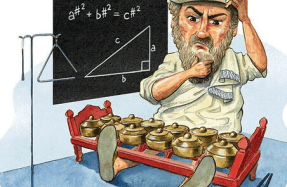
Remembered almost exclusively as a supporting role in someone else’s biopic, Antonio Salieri really deserves a film in his own right. A workaday composer, living in the shadow of a genius; a dull establishment figure to Mozart’s bohemian freelancer – these are the clichés that film and fiction have passed down to posterity.
In fact, Salieri was an orphaned teenager who was ‘saved’ by the kindness of others, and who would ultimately find himself working for royalty, being courted by theatres all over Europe and associating with the most celebrated artistic figures of the era. Though the music textbooks have chosen to forget the fact, he was a composer of considerable historic significance, both through his own artistic reforms and through the influence he had on many of the major composers and singers of the early-19th century.
Salieri was born in 1750 in Legnago, a small town on the border between two Italian states, the Kingdom of Venice and thechamber composer to Emperor Joseph II of Austria, Florian Gassmann, who visited Venice regularly to write operas for the Carnival. Gassmann agreed to take the boy on as a pupil and musical apprentice, taking him back with him to Vienna.




